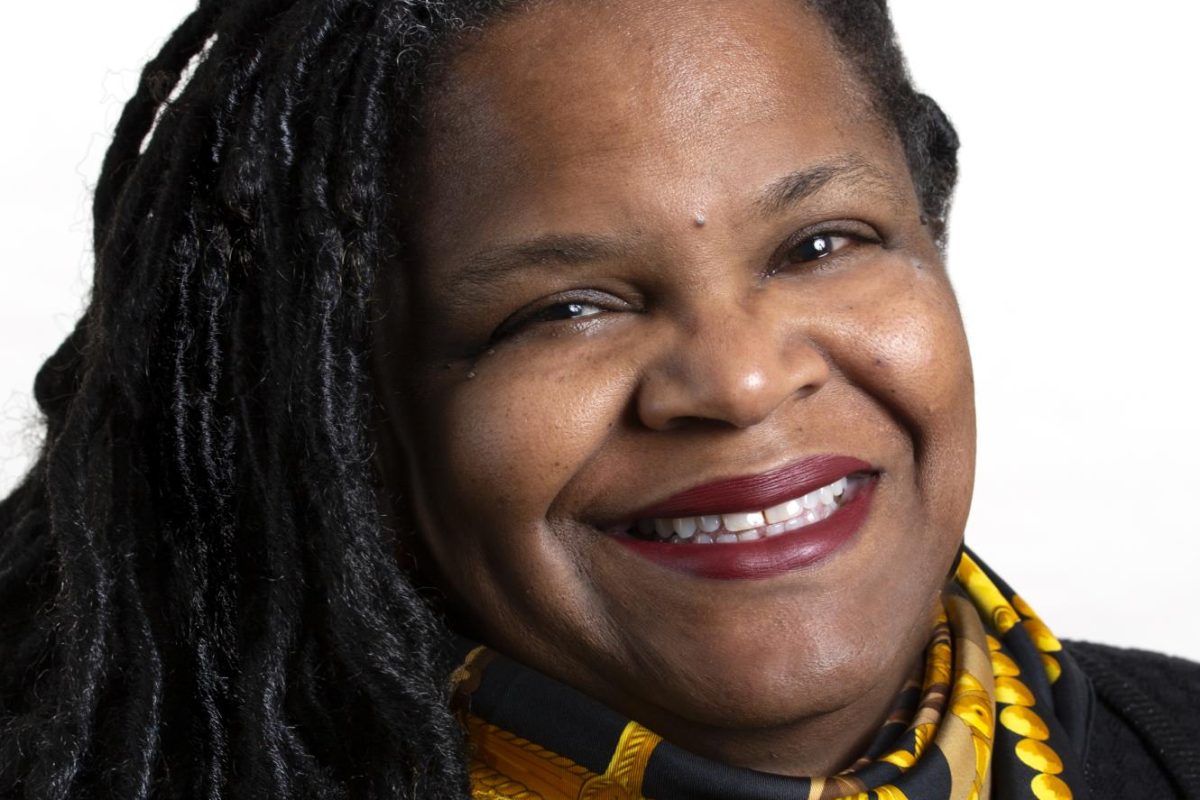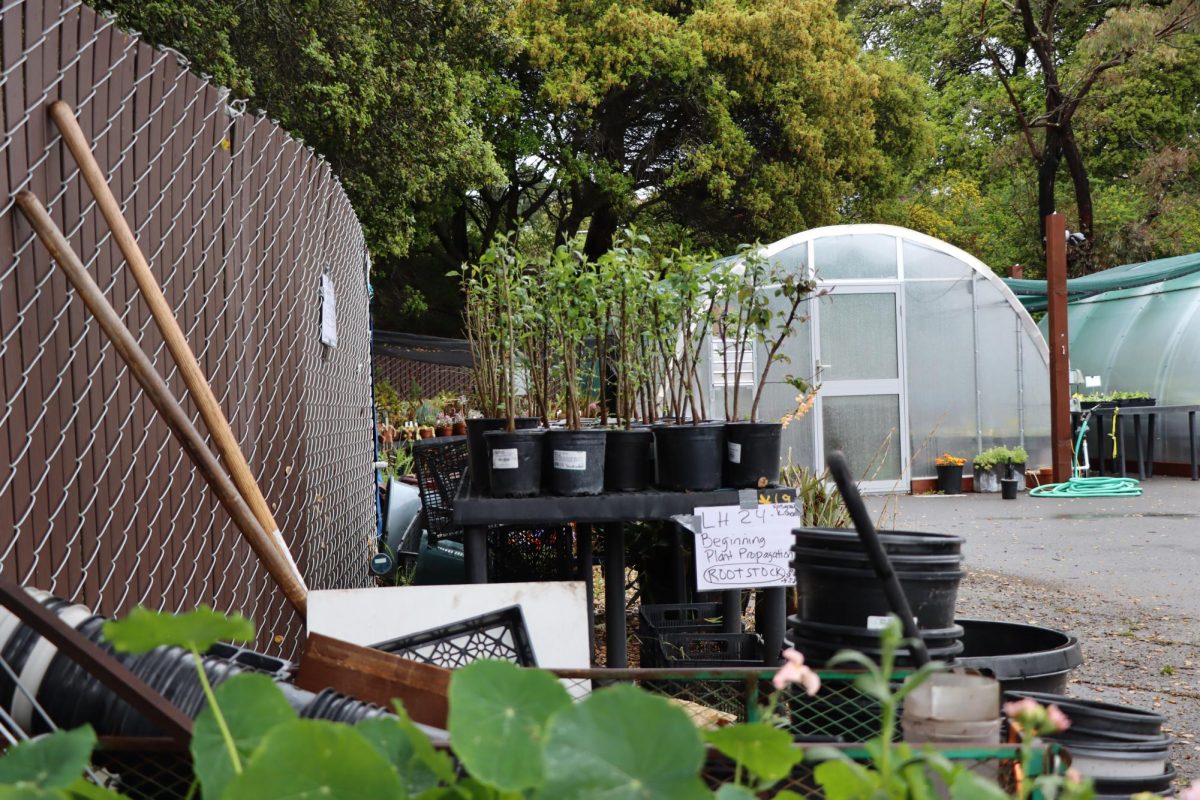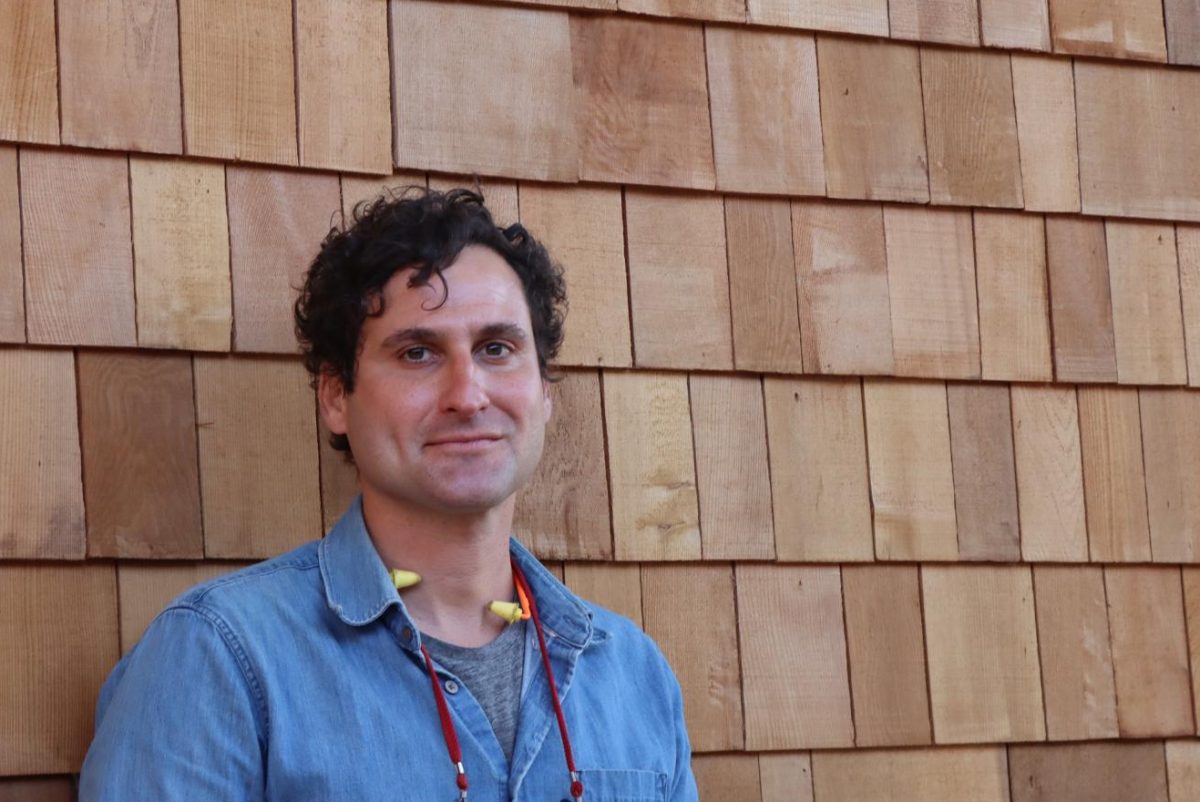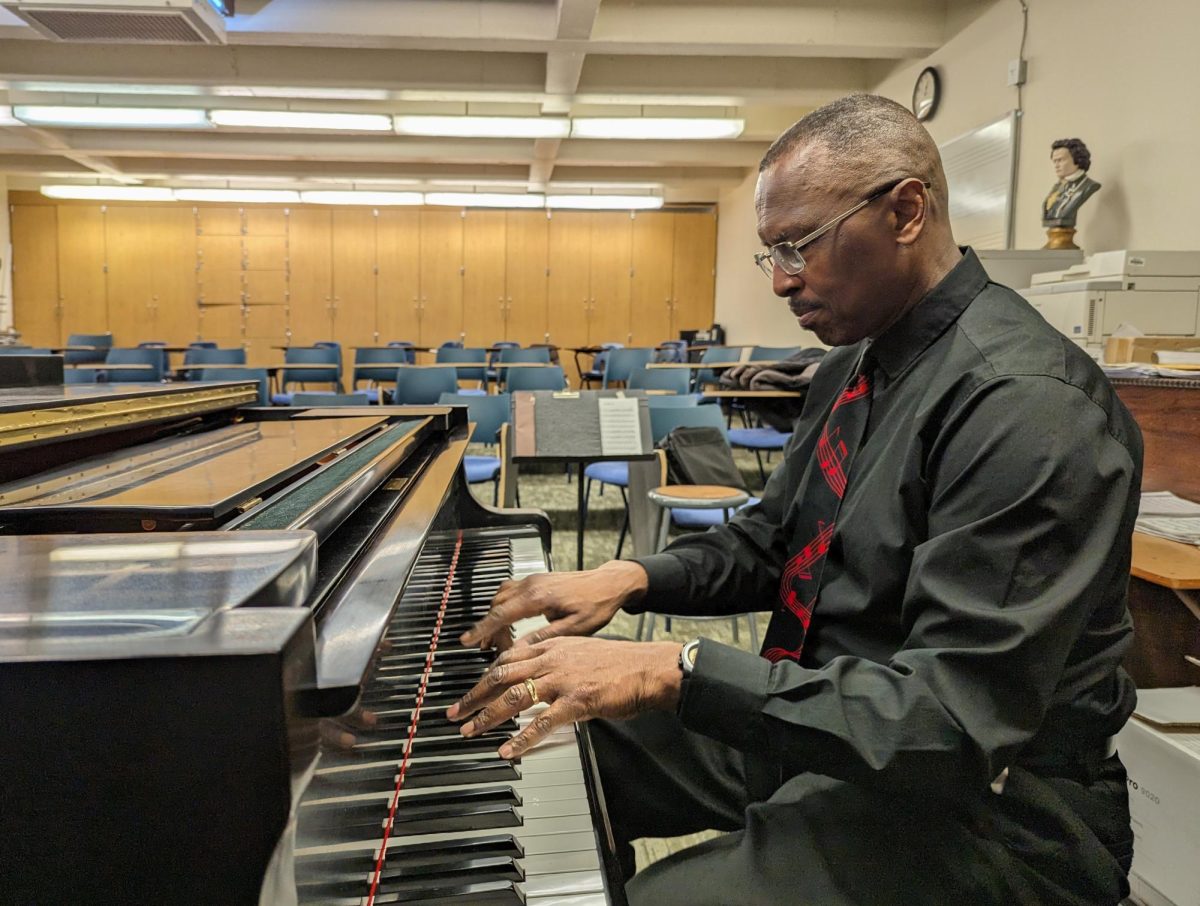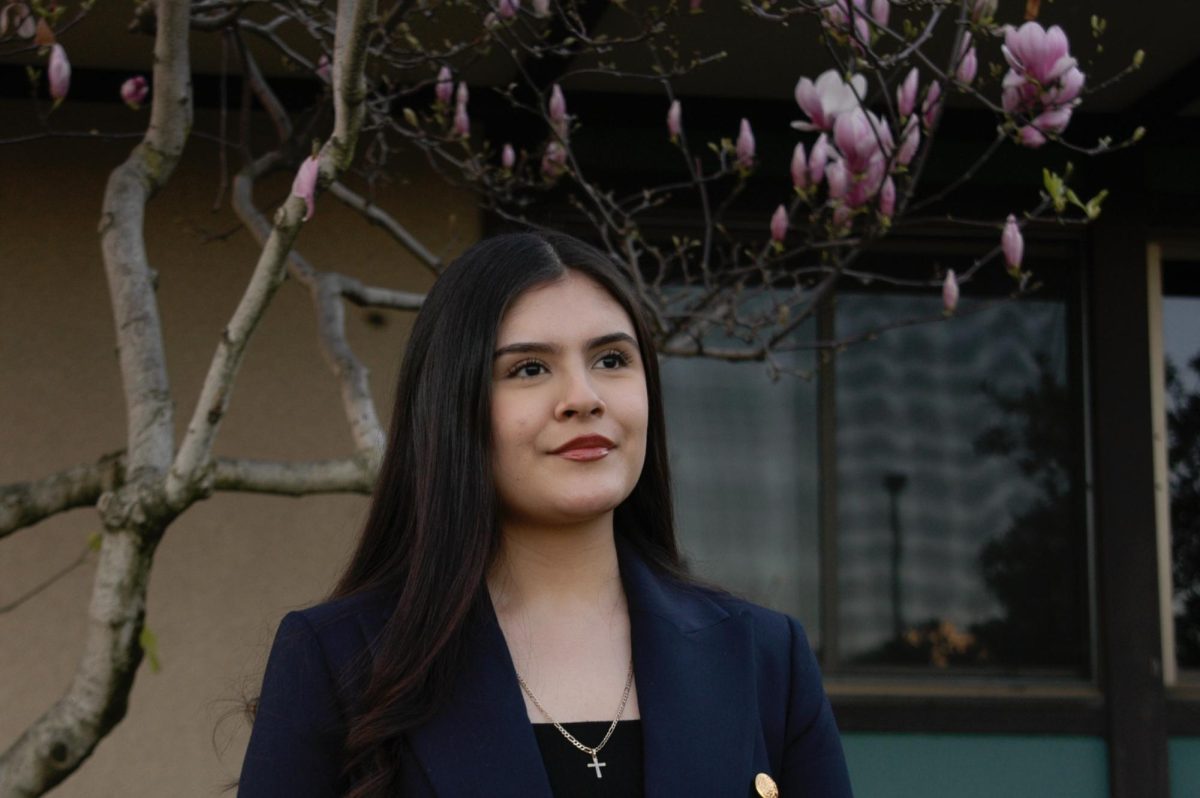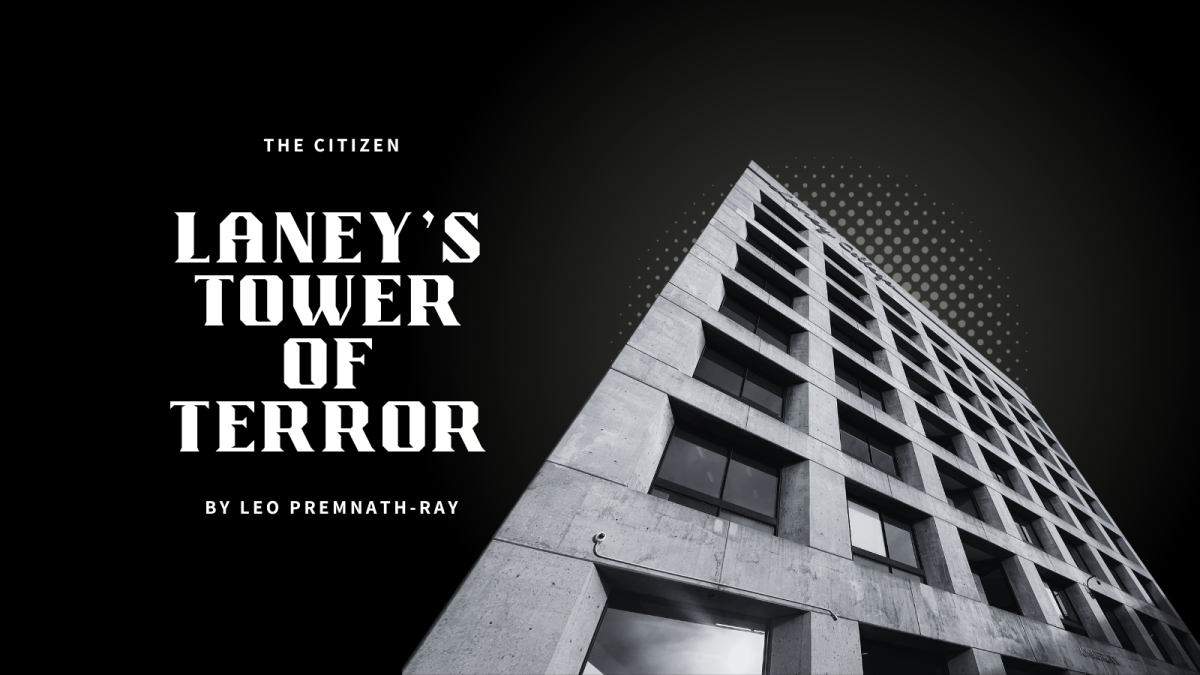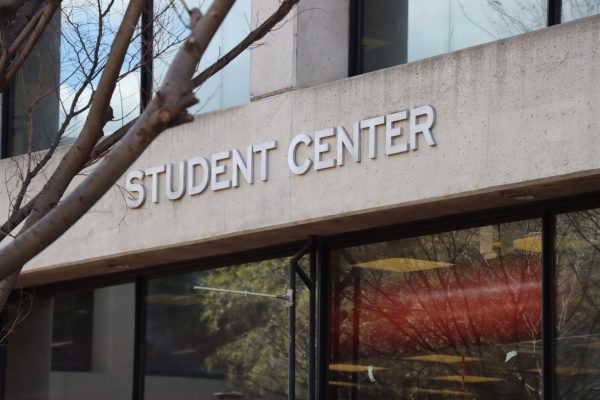Peralta’s emergency phones have been out-of-order for years.
By Saskia Hatvany
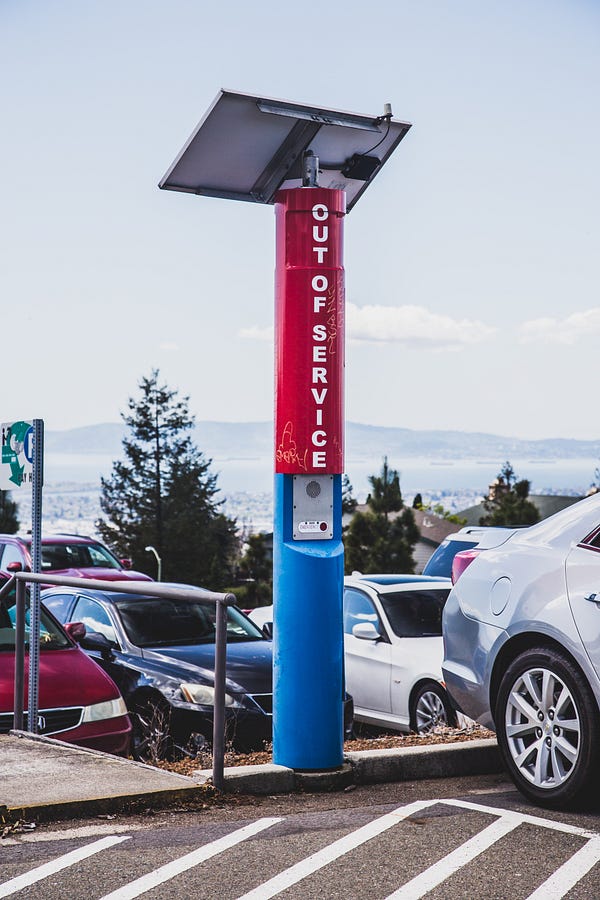
Large red banners reading “OUT OF SERVICE” have become part of the landscape at Peralta Colleges. The banners cover the district’s code blue emergency phones, most of which have needed repairs for years. The district introduced plans to replace the systems in 2015, but lack of budget has put the project on the backburner.
According to the Alameda County Sheriff’s Office, only two phones on the Laney campus and one phone at Merritt College are known to be fully operational. These well-known features of college campuses were installed in the 1980’s to provide immediate assistance in case of an emergency.
The phones can be found at all four Peralta campuses. Tall pillars are painted bright blue with a red light on top in order to make them as visible as possible. On the front of each pillar is a small, rudimentary panel with one red button, a speaker, and a microphone.
When the button is pressed, a Peralta Police Services Technician answers, But the voice on the other end of the line is nearly inaudible..
Despite the assumption that cell phones have made emergency stations obsolete, they can be useful in the situation of a dead or inaccessible cell phone. The Sheriff’s Office has confirmed that the phones that do work have been used at least twice in the past year — at both the Laney and Merritt locations, the only two campuses that still have some operational phones.
At Alameda College, plaques that read, “this location is being serviced” seal the front of the emergency devices. Berkeley City College states on their website that emergency phones are located in “the classrooms and each of the restrooms on the 2nd, 3rd, 4th, 5th floors”. However, BCC personnel were unable to verify the accuracy of the information.
In a March 15 meeting between PCCD Chancellor Jowel Laguerre, students, staff, faculty and administrators were invited to raise concerns about campus life. A Merritt student known only as Leslie mentioned the call boxes in the meeting.
She had been badly injured on the Merritt College campus and was leaning against an out of service emergency call box. Her cell phone had fallen into a ditch and died.
Eventually, she said, she was found by students who called for help using their cell phones, “It’s a hazard to anybody on these campuses,” she said.
Efforts to replace the Emergency Phone Systems began in June 2015. That year, the district approved a $39,550 contract with consultant company Security by Design.
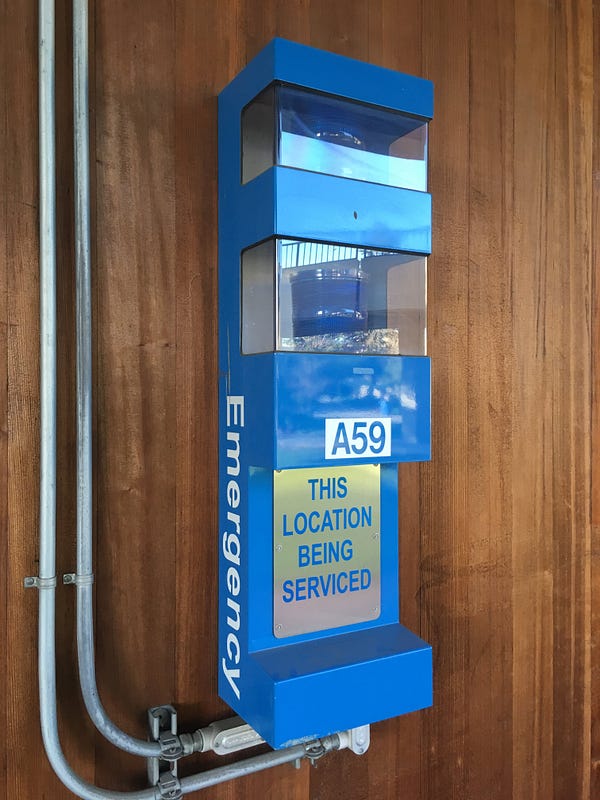
Within a year, the company was expected to complete a number of phases, including the assessment, planning and advising of the project. But according to Peralta district documents, a lack of available funds required that the work be spread over several fiscal periods.
Since the initial contract date, the deadline has been extended a total of three times. Now the district is awaiting approval for a fourth extension, which would push the deadline to March 2019 — four years after the initial agreement.
The time extensions are just one of the setbacks that the project has encountered. Since the initial contract date, the budget for the emergency blue phones has risen significantly, from $39,550 in 2015 to $188,510 in March 2017.
Furthermore, in documents published by the Peralta Board of Trustees, contradictory statements purport confusion as to which stages of the process have been completed.
A document from the BOT agenda affirms that phases I, II and III have been completed, but states in a later paragraph that “phase II construction” has yet to begin.
Meanwhile, Laney Director of Facilities Amy Marshall said the district has agreed upon a 1.3 million dollar contract with OJO Technologies, a company that specializes in high-tech security installations.
Plans include the installation of both indoor and outdoor call boxes. The new systems will be equipped with sophisticated cameras and a speaker that can be used by the Peralta Police to make announcements. OJO Technology is expected to begin phase one, installation of the new phones at Merritt and Laney campuses in May.
twice in the past year — at both the Laney and Merritt locations, the only two campuses that still have some operational phones.
At College of Alameda, plaques that read “this location is being serviced” seal the front of the emergency devices. Berkeley City College states on their website that emergency phones are located in “the classrooms and each of the restrooms on the 2nd, 3rd, 4th, 5th floors.” However, BCC personnel were unable to verify the accuracy of the information.
In a March 15 meeting between PCCD Chancellor Jowel Laguerre, students, staff, faculty and administrators were invited to raise concerns about campus life. A Merritt student known only as Leslie mentioned the call boxes in the meeting.
She had been badly injured on the Merritt College campus and was leaning against an out of service emergency call box. Her cell phone had fallen into a ditch and died.
Eventually, she said, she was found by students who called for help using their cell phones. “It’s a hazard to anybody on these campuses,” she said.
Efforts to replace the Emergency Phone Systems began in June 2015. That year, the district approved a $39,550 contract with consultant company Security by Design.
Within a year, the company was expected to complete a number of phases, including the assessment, planning, and advising of the project. But according to Peralta district documents, a lack of available funds required that the work be spread over several fiscal periods. Since the initial contract date, the deadline has been extended three times. Now the district is awaiting approval for a fourth extension, which would push the deadline to March 2019 — four years after the initial agreement.
The time extensions are just one of the setbacks that the project has encountered. Since the initial contract date, the budget for the emergency blue phones has risen significantly, from $39,550 in 2015 to $188,510 in March 2017.
Furthermore, in documents published by the Peralta Board of Trustees, contradictory statements add confusion as to which stages of the process have been completed. A document from the Trustees’ agenda affirms that phases I, II and III have been completed, but states in a later paragraph that “phase II construction” has yet to begin.
Meanwhile, Laney Director of Facilities Amy Marshall said the district has agreed upon a $1.3 million contract with OJO Technologies, a company that specializes in high-tech security installations. Plans include the installation of both indoor and outdoor call boxes. The new systems will be equipped with sophisticated cameras and a speaker that can be used by the Peralta Police to make announcements. OJO Technology is expected to begin phase one, installation of the new phones at Merritt and Laney campuses, in May.
Saskia Hatvany is a writer and photographer for The Laney Tower


